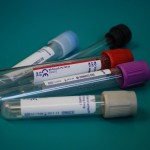Old Diabetes Drug Teaches Experts New Tricks
The drug most commonly used in type 2 diabetics who don't need insulin works on a much more basic level than once thought.
Combined Kidney-Pancreas Transplant Improves Survival in Type 1 Diabetes
For patients with type 1 diabetes and end-stage renal disease (ESRD), simultaneous kidney-pancreas transplantation increases the chances of long-term survival compared to kidney transplantation alone.
New Skin Patch Drug Shows Promise in Healing Diabetic Foot Ulcers and Preventing Amputations
A research team has developed a drug delivered through a skin patch that not only helps foot wounds heal better, but also prevents those wounds from recurring
Vitamin D Reduces Risk of Type 1 Diabetes
It is not known why some people get type 1 diabetes (diabetes that starts early in life), but there has been a suggestion that if children have a diet lacking in Vitamin D, they may go on to develop diabetes.
Swine Influenza (Swine Flu) and Diabetes
Being sick by itself can raise your blood glucose. Moreover, illness can prevent you from eating properly, which further affects blood glucose. In addition, diabetes can make the immune system more vulnerable to severe cases of the flu.
Diabetes Patients are Overtested, Mayo Clinic Warns
Mayo Clinic researchers report a trend toward overtesting patients with type 2 diabetes, resulting in increased cost, time and potential overtreatment with drugs. In...
Belly Fat May Affect Liver Function
A study suggests the release of lipids from abdominal fat, which drains directly to the liver, increases overnight, providing additional insight as to how abdominal fat is associated with type 2 diabetes risk.
Diabetes Most Prevalent in Southern US
Diabetes prevalence is highest in the Southern and Appalachian states and lowest in the Midwest and the Northeast of America.
38% of At-Risk Diabetics Not Getting Recommended Treatment
Research reveals important gaps in care, showing that certain people with diabetes are not being prescribed treatment by their doctors that could prevent cardiovascular...
IDF Urges Healthcare Providers to Address the Relationship Between Type 2 Diabetes and Sleep...
Recent research demonstrates that type 2 diabetes and obstructive sleep apnea (OSA) are closely related, and that both disorders have significant implications on public health and on individuals.
Previously Unrecognized Testosterone Deficiency Common in Men with Type 1 Diabetes
Testosterone deficiency, previously recognized as common in men with type 2 diabetes, is also common in men with type 1 diabetes according to a new study.
Obesity, Diabetes Interfere with Work Productivity
Obese workers with type 2 diabetes report less productivity on the job than their normal-weight co-workers, and diabetes in itself has an effect on work impairment.
Obese Black Teens At High Risk For Diabetes, Study Suggests
A new study suggests that obese Black teenagers have a greater risk of developing diabetes as adults than do their white counterparts.
Link Between Pkc Enzyme And Kidney Disease In Diabetes Confirmed
Scientists confirm the link between hyperglycemia (high blood glucose), overexpression of PKC-beta 2 and kidney disease.
Scientist Announces Breakthrough in Battle Against Type 2 Diabetes
Experts from the University of Stirling have made a type 2 diabetes breakthrough after studying why some people develop diabetes while others do not.
Phantom Limb Pain Frozen by Minimally Invasive Treatment
A recent study shows that interventional radiologists can use an innovative technique to relieve the pain that plagues millions of amputees, many of which...








